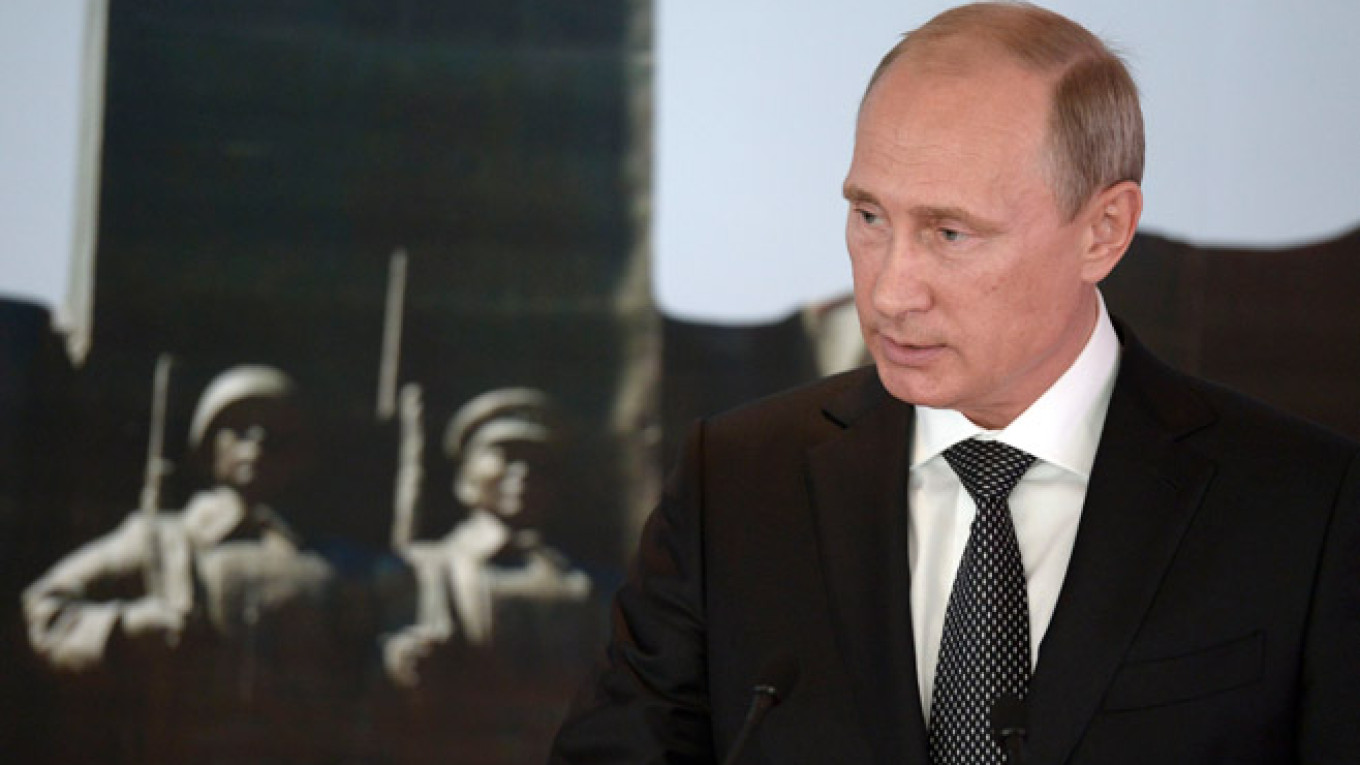President Vladimir Putin has taken personal control of a commission responsible for carrying out Russia's defense orders, stripping the role from the government, and warned about the burgeoning security threats Russia faces.
Putin also announced plans for a new military modernization program and once again called for Russia to reduce its dependence on foreign equipment, at a time when Moscow's traditional trade ties have been severed as a punishment for its role in the Ukraine crisis.
Widespread corruption, inefficiency and incompetence in the defense industry have made it difficult for the Military-Industrial Commission to ensure that contractors deliver on time and on budget, hence the need for the shakeup.
"I hope the commission's new status [under the presidential administration] and its broad powers will allow it to better coordinate the interaction between the Defense Ministry and other departments and enterprises of the military-industrial complex," Putin said Wednesday.
Deputy Prime Minister Dmitry Rogozin, the commission's previous chief, has been dumped down to the position of deputy following the reshuffle.
The new arrangement "will increase the efficiency of state policy in the military-industrial sphere and the … security of the country," Putin said during a meeting of the commission, according to a transcript on the Kremlin's website.
Ruslan Pukhov, director of the Center for Analysis of Strategies and Technologies, an independent Moscow-based defense think tank, said the seemingly insurmountable problems faced by the defense industry have pushed Putin to take personal control.
"Putin has had bad experiences with the defense industry in the past," Pukhov said. "Putin was the mediator between the [defense] industry and the army during the time of former Defense Minister Anatoly Serdyukov, and so he understands how difficult the situation has become and how complicated it is to manage, especially now in the case of economic crisis."
New Weapons Orders
Though Russia is already pursuing a massive $700 billion rearmament program through 2020, Putin said the commission will now formulate a state defense order covering 2016-2025 that is in line with Russia's current economic and security conditions.
The crisis in Ukraine has sparked a protracted standoff between Russia and the West that has cut the defense industry off from high-quality foreign components and Western credit, while Russia's defense community sees NATO's resurgence as a threat to national security.
He said NATO was using rhetoric over the Ukraine crisis to "resuscitate itself" and noted that Russia had warned repeatedly that it would have to respond to such moves, Reuters reported.
The modernization program through 2025 should focus on building a new array of offensive weapons to provide a "guaranteed nuclear deterrent," re-arming strategic and long-range aviation, creating an aerospace defense system and developing high-precision conventional weapons, Putin said.
Putin said the new defense order will be ready by October and should complement Russia's revised military doctrine — a document analyzing the threats to Russia and the possible responses to those threats. The doctrine is slated to be finalized by December.
"We need to clearly calculate the potential threats to the military security of Russia and for each of them there should be a sufficiently adequate response," Putin said.
The new federal armament program places much emphasis on the need to ensure that Russia's defense industry is not vulnerable to foreign supply cuts.
"We have no intention of artificially severing cooperation with our foreign partners, but we should keep in mind the existing threats," Putin said. "Russia's [defense] industry should be ready to produce critically important equipment, components, materials and have sufficient production capacities, technologies, research and technical potential."
Despite the preceding harsh rhetoric, Putin said that he would not preside over a Russian entry into a new arms race, and that the development of the defense industry was about ensuring national defense and preventing the loss of production capabilities.
Contact the author at bizreporter@imedia.ru
A Message from The Moscow Times:
Dear readers,
We are facing unprecedented challenges. Russia's Prosecutor General's Office has designated The Moscow Times as an "undesirable" organization, criminalizing our work and putting our staff at risk of prosecution. This follows our earlier unjust labeling as a "foreign agent."
These actions are direct attempts to silence independent journalism in Russia. The authorities claim our work "discredits the decisions of the Russian leadership." We see things differently: we strive to provide accurate, unbiased reporting on Russia.
We, the journalists of The Moscow Times, refuse to be silenced. But to continue our work, we need your help.
Your support, no matter how small, makes a world of difference. If you can, please support us monthly starting from just $2. It's quick to set up, and every contribution makes a significant impact.
By supporting The Moscow Times, you're defending open, independent journalism in the face of repression. Thank you for standing with us.
Remind me later.


